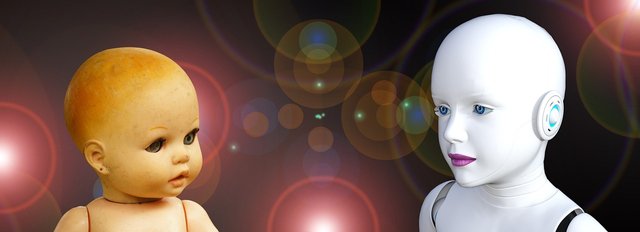The Dawn of Quantum Computing and AI, and Shattering of Our Beliefs
Greetings friends!
Recently, tech giant Google has achieved a ground-breaking milestone in quantum computing with its new quantum chip, Willo. According to Google, this chip has solved a computational problem in just five minutes which would take today’s best supercomputers approximately 10 septillion years to accomplish. To make you clear how much this time is, I would like to tell you that one septillion is equal to 10^24, a number so vast that it exceeds the age of the universe.

Quantum computers may revolutionize our world with such implications that are both exhilarating and profound. Now imagine the integration of quantum computing with Artificial Intelligence (AI). In such a scenario, AI can evolve into a force so powerful that it may surpass the computational capacity of entire human beings. This technological leap has the potential to shatter humanity’s long-held beliefs and myths, especially those that comes from religions and our perception of consciousness.
This is the Time to Rethink About the Concept of the Soul
Traditional religions have believed that every living being possesses a soul or spirit. However, advancements in biology and technology are challenging this idea. Just consider how life manifests in the natural world. A branch cut from a tree can grow into a fully living tree. Where does the soul reside in this process? Similarly, when bacteria divide, does one soul split into multiple souls?
Now think about humans. We originate from the fusion of a single sperm and egg. Do these gametes possess separate souls that merge upon fusion, or does the soul enter after merging process? If it comes after fusion, how do we explain cloning, where a complete human can develop from a single cell? This means every cell in our body might carry its own "soul," integrating into a unified entity during development. Isn’t it?
This brings us to a compelling analogy that the soul is akin to a computer’s operating system. An operating system can be copied, modified, or even deleted. Similarly, souls could be replicated, altered, or extinguished. This perspective challenges the notion of the soul as eternal.
The Rise of AI and Consciousness
The human brain functions like a highly advanced processor, running complex computational processes that manifest as consciousness and intelligence. If consciousness is the ultimate result of intricate computations, AI could theoretically achieve the same level of awareness. With continual advancements, evolvement and modifications, there’s no inherent barrier which may prevent AI from attaining human-like consciousness and intelligence.
Some may argue that emotions set humans apart. But emotions are simply reactions. They are biological responses to stimuli shaped by our consciousness. If AI can achieve consciousness, it could also develop emotional responses tailored to its experiences.
We Have a Future Beyond Our Imagination
In future there will be no distinction between a living creature and a machine. The rapid advancement of technology suggests that these ideas may soon become reality. A future where AI and humans share comparable levels of intelligence and consciousness is not as far as it once seemed. This aligns with philosophical ideas found in Hindu and Buddhist teachings, where the world is described as maya—an illusion of endless possibilities. (Quantum computing also works on multiple aspects simultaneously which we may call maya!)
In this unfolding reality, the distinction between human and machine could blur. It is bound to redefine the meanings of being conscious, intelligent, and alive. The implications are profound, urging us to rethink about our concept of existence, and the role of humanity in our increasingly technological world.
Thanks for reading!
PS: I am writing this after having two pegs. So, please ignore errors, if any.
https://blog.google/technology/research/google-willow-quantum-chip/